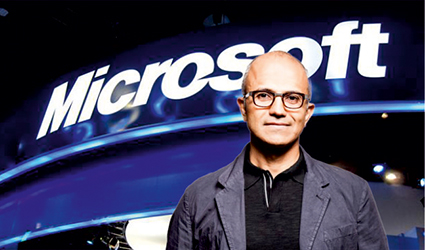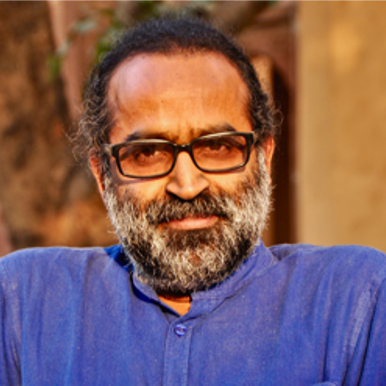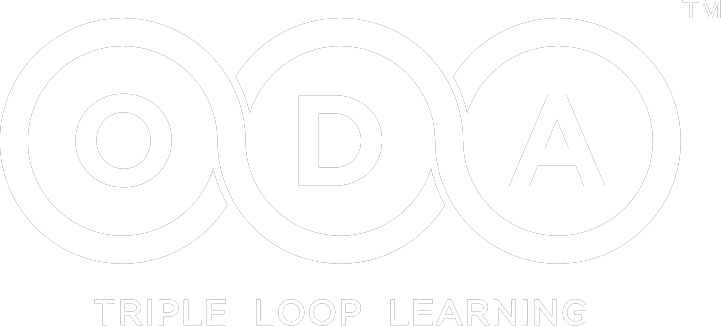The 2020 Leader – Learning From The Future


Santhosh Babu
Prediction is difficult, especially if it’s about the future. But then human beings love to try and peek into the future through a crystal ball, planetary positions, lines of the palm, researching mega-trends and projecting the current available knowledge about things for a future possibility.
What are some of the trends shaping our future, and what kind of leadership behaviour will help us navigate through our future? What leadership competencies will help us manage the trends that we see today?
New form of Globalisation: East moving towards the West
The London Cab is as much an icon of the British capital as the Big Ben or the Tower of London. Chinese car manufacturer Zhejiang Geely bought black cab maker Manganese Bronze. Geely also bought Volvo in 2010 and couple of years ago Tata bought Jaguar and Land Rover, two of the proudest names in the car industry.
Indians are now leading massive global organizations, and the likes of Satya Nadella, Indra Nooyi, Shantanu Narayen, Rakesh Kapoor, Ajit Jain, Anshu Jain, and Ajay Banga will increase in the coming years. In the academic world, Prof. Rakesh Khurana, Sanjeev Kulkarny, Deepak Jain and Nitin Nohria along with many others are heading prestigious universities worldwide.
The new globalisation is east moving towards the west, while professionals from the west continue landing in their homeland in the east to do meaningful work. So the world is shrinking and the saying “such a small world” is literally true. This means that Indian leaders need to be global leaders in 2020.
Can we turn the clock back? Environmental challenges
Two months ago Tim Cook, the CEO of Apple, said in a shareholder meeting that Apple’s environmental efforts also made economic sense, but when challenged by a conservative shareholder activist group that Apple wouldn’t do anything related to the environment that didn’t follow a clear profit motive, Cook firmly replied with anger in his voice that “we do a lot of things for reasons besides profit motive,” and recommended that anyone who had a problem with that “should get out of the stock.”
“When we work on making our devices accessible by the blind,” he said, “I don’t consider the bloody ROI [return on investment].” The need for ‘system’ thinking rather than just ’cause and effect’ thinking and ‘long-term vision’ yet focus on ‘short-term sustainability’ is what will help the future leader address the environmental and resource challenges. We need leaders who will be socially responsible and focus on a triple bottom line: Profits, People and the Planet.
The Return of Ayn Rand
“But you see,” said Roark quietly, “I have, let’s say, sixty years to live. Most of that time will be spent working. I’ve chosen the work I want to do. If I find no joy in it, then I’m only condemning myself to sixty years of torture. And I can find the joy only if I do my work in the best way possible to me. But the best is a matter of standards-and I set my own standards. I inherit nothing. I stand at the end of no tradition. I may, perhaps, stand at the beginning of one.”
? Ayn Rand, The Fountainhead.
The new generation is not just bothered about where the next meal will come from but they are also bothered about belonging, autonomy, self-realisation, meaning and purpose. The good news is that the younger generation understands the need for personal meaning and values, and embrace Victor E. Frankl as much as they do Ayn Rand. “Everything can be taken from a man but one thing: the last of the human freedoms-to choose one’s attitude in any given set of circumstances, to choose one’s own way,” Frankl wrote in his book, Man’s search for meaning. Employees need work that suits their personal values and adds meaning to their lives. Customers want products that are customised for individual tastes and thus the time of Individualism and personal meaning is here! This means that the 2020 leader needs to clearly articulate a meaning, a purpose and manage organizations where individuals can have their freedom, flexibility and still manage to work in a way that is meaningful to their core values.
Keeping these trends in mind, I asked a number of senior leaders what would be the competencies for a 2020 leader. Prof Robert Kegan, Harvard University; Deepak Chopra; Dr. Santrupt Misra, CEO, Carbon Black Business and Director, Group Human Resources of the Aditya Birla Group; Prof Vidyanand Jha, Behavioural Sciences, IIM Calcutta; Prof Rishikesha Krishnan, Director-IIM Indore; Rohit Thakur, HR Head Microsoft India; S. Varadarajan, Chief Human Resource Officer, Tata SIA Airlines; Ranjan Bandyopadhyay, Global HR Head for Strategic Initiatives and BPO, TCS; Makarand Khatavkar, Managing Director and Head-Human Resources, Deutsche Bank AG; Prithvi Shergill, Chief Human Resource Officer, HCL; Piyush Mehta, Senior VP, HR at Genpact; Sandeep Gandhi, CHRO Aircel – Maxis Group; and Krish Shankar, Head of HR for the Indian subcontinent at Philips, shared their views on the 2020 competencies of a leader.
What they have said and what it means to lead in 2020 is in the next column, so stay tuned!
As a child in the 1970s, I grew up in Kerala with my grandmother and great grandmother. Every evening, we would sit in our front garden, by an old tree with a jasmine plant growing in its branches, and listen to the radio. Back then, radios took quite a while to warm up and start. And speaking of radios, it took 38 years for them to amass 50 million users. It is a rather a long warming up time when we consider that Facebook took only two years to amass 50 million users.
The pace of change that all of us experience nowadays, along with environmental and sustainability challenges, growing concern for individuality and meaning, and the fact that leaders now face more adaptive problems than technical ones, demands a new mindset and new competencies from the 2020 leader.
According to Ronald Heifetz, Founder of the Center for Public Leadership at Harvard Kennedy School, leaders are confronted by two types of problems: ‘technical’ problems, which can be solved by expertise and good management; and ‘adaptive’ problems like natural disasters, natural resource supplies and economic problems – which require innovation and continuous learning. While traditional management strategies are useful in dealing with technical problems, Heifetz argues that only leaders evolving their thinking and values to a new, higher level can address the new century’s many adaptive challenges.
Analjit Singh, founder and chairman of Max Healthcare and Max Bupa Health Insurance Co Ltd and Executive-Chairman of Max Life Insurance, while addressing a gathering recently, said we should move away from blue-sky thinking to cloudy-sky thinking, keeping in mind the fast paced changes we experience.
I reached out to a number of industry experts enquiring about the competencies of the 2020 leader. Among the people I approached, four were from academia, Prof. Robert Kegan from Harvard School (author of The Immunity to Change), Prof. Vidyanand Jha from IIM Culcatta, Prof. Rishikesha Krishnan from IIM Indore and Prof. Kavil Ramachandran from ISB, Hyderabad. Robert Kegan wrote to me in his email that “Companies that will thrive in the years ahead will be those with the greatest reservoir of human capabilities – not in the leader alone, but in those who are led. No leader will succeed trying only to buy, recruit, and retain the best talent available. The single most important characteristic in the leader will be the ability to shape a culture that can grow talent – help people become better versions of themselves – every day, in every job, woven into the way work gets done.” Kavil Ramachandran said that leaders need to have the ability to think from multiple perspectives simultaneously, demonstrate adaptability and need to have tolerance for ambiguity.
“The 2020 leaders need to manage diverse stakeholders, balance profitability and sustainability and higher expectations of public accountability” said Rishikesha Krishnan. According to Prof Vidyanand Jha, the first set of competencies is the ability to dream, think strategically along and imagine. The second is the ability to persuade or use influence without authority, and the third is compassion.
I also reached out to senior HR and learning professionals and a large number of people responded to the question, “What would it take to lead in 2020?” Rohit Thakur, HR Head Microsoft India, S. Varadarajan, Chief Human Resource officer, TATA SIA Airlines, Ranjan Bandyopadhyay, Global HR head strategic Initiatives &BPO, TCS, Makarand Khatavkar, Managing Director & Head-Human Resources, Deutsche Bank AG, Prithvi Shergill, Chief Human Resource officer, HCL, Piyush Mehta, Senior VP, HR at Genpact, Sandeep Gandhi, CHRO Aircel – Maxis Group, and Krish Shankar, Head of HR, Indian Subcontinent at Philips, Dr Sujaya Banerjee, Chief Talent Officer and Sr VP HR, Essar Servises, Shalini Sarin VP and Country Partner HR, Schneider Electric, Sanjay Sen, Group HR head, Avantha group and Yogi Sriram, Sr VP Larson and Toubro.
Here are the characteristics that describe a 2020 leader:
1). Mindfulness, authenticity, self-awareness, compassion and courage:
Focus was placed on developing the inner aspect, the ‘being’ aspect of a leader. Courage is another important quality – having the courage to make oneself vulnerable because the 2020 leader is not going to have all the answers. S. Varadarajan termed this as humaneness, using both head and heart. Adaptive challenges require leaders to move up into a higher level of awareness and conciousness.
2). Systems Thinking, Strategic thinking, learning agility:
Ranjan from TCS also mentioned “eclectic thinking”. Cause and effect thinking will help us solve today’s problems but create more problems for tomorrow. The green revolution is a great example for this. While hybrid seeds increased productivity initially, in the long term we realised that the excessive use of pesticides and chemicals destroyed the fertility of the soil and affected our health negatively. To deal with this, tomorrow’s leaders will need to think strategically and systemically.
3). Managing ambiguity, inclusion and diversity:
A collaborative mindset that allows a leader to influence people without authority, as well as navigate through complexities, was required. This is also the ability to hold multiple truths and develop acceptance of multiple realities. Tomorrow’s leader needs to have an inclusive mindset. A senior Indian leader was posted in the multinational company’s London office. He asked a reportee to prepare a presentation on his behalf for an upcoming board meeting. On the day of the meeting, when he was going to the boardroom he saw the lady who made the presentation also walking along with him. When he asked her why she was accompanying him, she replied that since she made the presentation, she would present it as well. This was a shock to him as he was used to his team members preparing presentations for him without actually presenting them. The point here is that the Inclusion quotient of the 2020 leader needs to be high.
RISE OF ATHENA VALUES AND COMPETENCIES
Looking at all this data, I believe that the 2020 leader will demonstrate more Athena characteristics than Ares characteristics.
Athena, the Greek Goddess, led the disciplined and strategic side of war, in contrast to her brother Ares: the patron of violence, bloodlust and slaughter – “the raw force of war”. Athena is the goddess of knowledge, purity, arts, crafts, learning, justice and wisdom. She represents intelligence, humility, consciousness, cosmic knowledge, creativity, education, enlightenment, the arts, eloquence and power.
To lead in the future, we need to be more evolved, compassionate, socially responsible, system focused and accepting of diversity and ambiguity.
Please click here to download the latest OD PUBLICATION.

